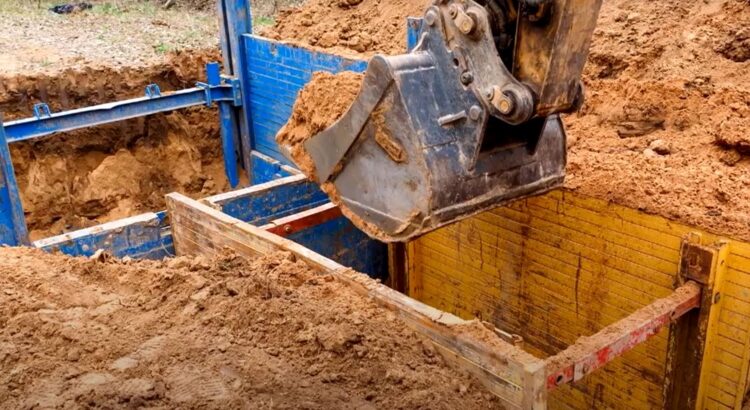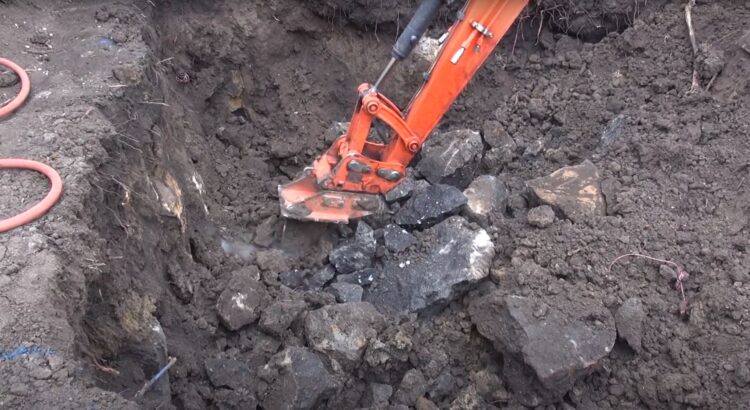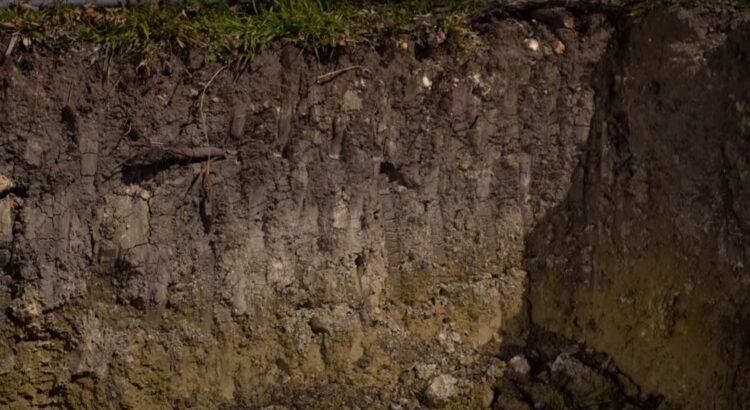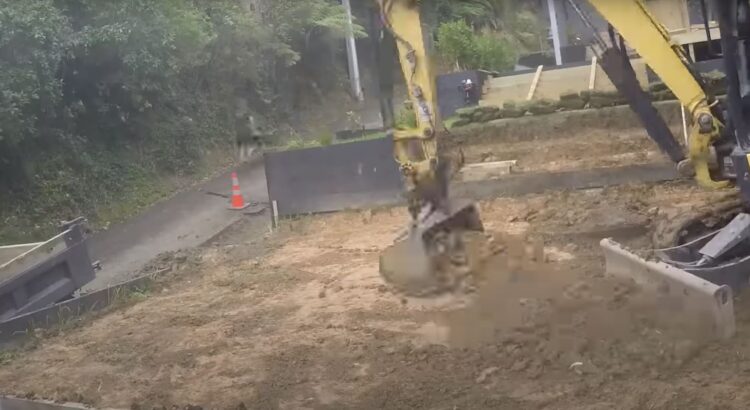Understanding Auckland’s Terrain and Suburb Variations
Auckland, with its vast topographical range, presents a diverse excavation scenario. For instance, Milford, being coastal, has different soil properties compared to Balmoral’s more urban environment. These variations not only influence excavation techniques but also the cost, as certain suburbs may require advanced equipment or specialized procedures.
Recognising Health and Safety Obligations
Under the Auckland Council’s guidelines, specific excavation health and safety standards must be upheld during excavation. Ensuring that workers are protected against potential cave-ins, being struck by objects, and harmful atmospheres is paramount.
Environmentally Conscious Excavation
Our unique Auckland environment demands respect. Excavators must take measures to prevent any soil or debris from entering and polluting our natural waterways. Plus, with increasing emphasis on sustainable practices, the preservation of native flora and fauna during excavation is of utmost importance.
Secure and Support – Always
Excavation, by nature, involves moving earth and creating open spaces in the ground. While this is necessary for construction and infrastructural projects, it’s a process fraught with potential hazards if not approached with the right precautions. One fundamental principle stands paramount amongst all: always secure and support your excavation site.
Why is it essential?
Every year, we hear of unfortunate incidents where excavation sites collapse, causing both property damage and, sadly, loss of life. More often than not, these tragedies are avoidable with the right support systems in place. The soil, contrary to what one might think, isn’t just a passive pile of dirt. It’s dynamic, with factors like moisture content, type of soil, and external pressures influencing its behaviour. In places like Auckland, where the soil composition can vary dramatically from one suburb to the next – think the sandy shores of Milford to the clay-rich grounds of Balmoral – understanding and respecting the land becomes even more crucial.
Types of Support Systems
There are various ways to support an excavation, and the right choice often depends on factors like depth, soil type, and surrounding structures.
- Shoring: This involves installing supports (usually aluminium or timber) to prevent the collapse of soil. Hydraulic shoring, using adjustable aluminium rods, is a popular choice due to its ease of installation.
- Trench Boxes: These are structures that are placed in the trench and are usually made of metal or reinforced plastic. Workers work inside these boxes, protected from potential collapses.
- Benching: This method involves carving out the walls of the excavation in steps or tiers. It’s more commonly used in larger excavations.
Types of Support Systems in Excavation
| Support System | Description | Common Use Cases |
| Shoring | Installing supports (usually aluminium or timber) to prevent soil collapse. | Deep trenches, proximity to buildings. |
| Trench Boxes | Metal or reinforced plastic structures placed in the trench for protection. | Utility works, short-term excavations. |
| Benching | Carving out the walls of the excavation in steps or tiers. | Larger excavations, stable soil types. |
Auckland’s Unique Challenges
Every region has its unique challenges when it comes to excavation, and Auckland is no exception. With its varied terrains and soil compositions, Auckland demands a tailored approach. Coastal areas like Milford might have sandy soil which can be more prone to shifting, requiring robust shoring methods. On the other hand, urban areas like Balmoral might have existing underground utilities that need careful consideration while deciding on the support system.
Bylaws and Regulations
Auckland Council has stringent bylaws and regulations in place to ensure the safety of both workers and the general public. These bylaws, influenced by regional council codes, ensure that excavation practices meet safety and environmental standards. For instance, there might be restrictions on excavation depths or requirements for post-excavation site restoration. It’s always advisable to be well-versed with these bylaws before commencing any excavation project.
Utilities: Anticipate and Plan
Before any excavation starts, it’s crucial to determine the whereabouts of utilities like gas, water, or electrical lines. Auckland council bylaws stress the importance of avoiding damage to such utilities, which not only pose safety risks but also hefty repair costs.
Training and Emergency Protocols
Regular training for all personnel involved in excavation is vital. Such training ensures everyone is aware of potential dangers and the correct procedures. Furthermore, should any emergency arise, swift action can save lives.
Cost Implications: Suburb Specifics
Different Auckland suburbs have varied requirements. In Milford, with its coastal proximity, excavation might involve additional water management techniques. Conversely, Balmoral’s urban setting may involve navigating underground utilities, thereby impacting the total cost.
Monitoring Atmospheric Hazards
In deeper excavations, there’s a possibility of encountering hazardous gases or low oxygen environments. Monitoring equipment becomes necessary to ensure workers aren’t exposed to such conditions.
Equipment Maintenance
Regular checks and maintenance of excavation machinery and tools ensure not just efficient operation but also safety. Any equipment malfunction can cause severe setbacks, both in terms of project timelines and safety.
The Crucial Role of Protective Gear
Helmet, gloves, boots, and visibility vests are non-negotiable. They offer the first line of defence against potential injuries.
Remember, excavation is a task where cutting corners can lead to dire consequences. Ensuring adherence to all guidelines and safety precautions guarantees not just a successful excavation but also the well-being of everyone involved. When in doubt, always consult a local expert, ensuring you get the most accurate and region-specific advice
Excavation Safety in Auckland: Frequently Asked Questions
Why is the terrain different in Auckland suburbs?
Auckland’s geographical diversity, influenced by its volcanic history and coastal borders, means each suburb can present unique soil compositions and challenges. For example, coastal Milford might have more sandy soil, while urban Balmoral might have a mix of clay and silt.
Are there any specific Auckland bylaws I should be aware of before excavating?
Yes, Auckland has specific bylaws governed by regional councils that dictate excavation guidelines. These can relate to permissible excavation depths, timings, protection of public amenities, or post-excavation restoration. It’s always advisable to consult with your local council or a professional before commencing work.
How do I know if there are utilities underneath my property?
Before any excavation work, you should liaise with utility companies or use the services of a locator professional. They can identify and mark out underground utilities like water, gas, and electrical lines, ensuring safety during excavation.
What is the significance of protective systems for trenches?
Protective systems prevent the walls of a trench from collapsing, protecting workers from being buried or injured. Any trench over 1.5 meters in Auckland typically requires such protective measures as per safety guidelines.
How does the excavation process impact the environment?
Improper excavation can lead to soil erosion, polluted waterways, and habitat destruction. In Auckland, given our unique environment, it’s crucial to adopt sustainable practices, ensuring minimal environmental impact.
Does coastal excavation, like in Milford, cost more?
Often, yes. Coastal areas like Milford might require special techniques or equipment due to sandy soil and water proximity, potentially increasing costs. However, exact costs can vary based on the specific requirements of each project.
Why is training so essential for those involved in excavation?
Training ensures that every individual understands the risks associated with excavation and is equipped with knowledge on safety procedures. This is crucial not only for the well-being of the workers but also for the successful completion of the excavation without incidents.
How do urban areas like Balmoral differ in excavation requirements?
Urban areas, such as Balmoral, have their own set of challenges. The proximity to underground utilities, need for traffic management, and potential noise restrictions are some factors that might impact excavation in such areas.
Are there any exemptions to these safety rules?
While the safety rules are standard, certain minor or shallow excavations might not require extensive protective systems. However, it’s essential always to prioritize safety and consult an expert if uncertain.



